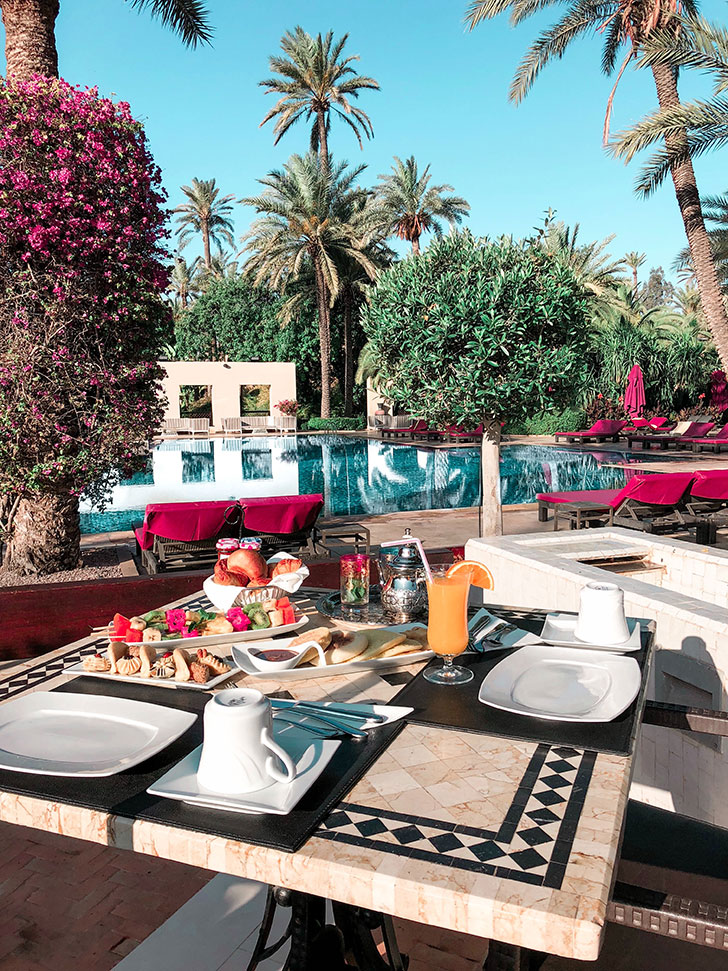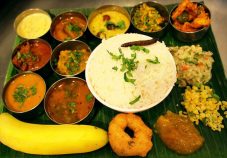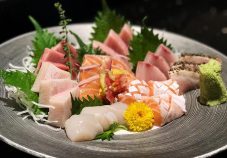Similar to other religions, Islam has a set of dietary guidelines for its followers. The food and beverages under the guidelines are divided between those that are allowed, known as halal, and those that are prohibited, called haram. These rules originated from the teachings found in the Quran to help Muslims maintain a strong and healthy body so they can contribute to the welfare of society. Also, Muslims believe their prayers will be rejected by Allah if they consume any prohibited food mentioned in a Hadith, which is a collection of traditions and sayings by the prophet Muhammad.
When food is prepared in their homes, Muslims typically have no issue following the rules about eating and drinking permitted foods. The challenge lies when they are dining out and are not in control of what goes on in the kitchen. The easiest way to ensure they are eating halal is by researching which restaurants and stores serve halal foods. In case they are having a difficult time finding halal places, downloading an app like Muslim Pro can help direct them to nearby halal dining options.
If Muslims find the selection of restaurants in the Muslim Pro app is too far from where they are, they can still dine in other restaurants that don’t specialize in halal dishes. They can simply scan through a menu and see their next best option. Muslims looking for halal options can also request to know more about how foods are prepared and what their ingredients are so they can make sure they are eating halal meals.
To know more about the type of foods and beverages Muslims can consume while dining out, read on.
How to determine if food is Halal?
As mentioned in the Quran, Muslims are permitted to eat food that is “good”. These are foods and drinks that are considered pure, clean, nourishing, and pleasing to the taste. Unless specified by the Quran as forbidden, everything is halal. These foods include rice, pasta, milk, eggs, nuts, fish, seafood, and all types of vegetables and fruits whether they are raw, frozen, canned, or juiced. For cheese, yoghurt, and ice cream, they need to be made with bacterial culture to be considered halal. However, these halal foods must not be mixed or prepared with any haram ingredients or else, they are not permissible for consumption.
In certain circumstances, Muslims can consume prohibited food and drink without being considered as a sin against Allah. For Islam, the law of necessity allows prohibited acts if there is no other alternative. For example, eating haram foods is not a sin if the individual is at risk of starvation and there is no halal food available.
What are Haram foods?
In the interest of their health and cleanliness, Muslims must abstain from eating certain foods. By refraining from consuming specific foods and drinks, Muslims show their obedience to Allah’s rules. In the Quran, the following are listed as prohibited:
- Blood
- Pork, bacon, ham, or any meat from a pig
- Gelatin made from haram sources
- Alcoholic beverages or any food with alcohol
- Vanilla extract due to its alcohol content
- Animal fats
- Meat from a carcass
- Meat of an animal not slaughtered in the prescribed Islamic process
When is animal meat considered Halal?
In Islam, meat needs to be prepared in a certain way before it can be considered halal. This is because one of the teachings of the religion involves valuing all lives. Even if killing an animal means it will provide food, it must be done in a humane manner and with God’s permission.
Lamb, beef, goat, and chicken, are some examples of meat Muslims can consume as long as they are slaughtered according to the Islamic way. Muslims must slaughter the animal by slitting its throat in a swift motion with a sharp knife to ensure the animal is free from any suffering. While this is happening, a prayer is recited to ask consent from God for killing the animal for food.
Before being slaughtered, the animal must not see the blade or other animals being killed. Also, the knife to be used must not bear any blood from a previous slaughter. Once all of the animal’s blood has been drained, only then can the meat be processed. When meat is prepared this way, it is called zabihah and is considered halal.
To cater to their Muslim clients, a lot of commercial meat packers are getting certified so their foods can comply with Islamic dietary guidelines. This increases the availability of halal meat and other processed halal-certified foods, providing Muslims with more options when they shop for groceries or dine out.
Muslims must follow certain dietary rules to show their obedience to Allah. While the rules on halal and haram foods are easy to follow when at home, it can be challenging when Muslims are dining out in a new place. If you are eating in a restaurant that does not specialize in preparing halal foods, select vegetarian or seafood meals. This way, you can have a pleasurable restaurant experience and remain faithful to Islamic teachings.






















 Top 10 Trusted Maid Agencies in Singapore
Top 10 Trusted Maid Agencies in Singapore  The 7 Most Romantic Restaurants in Singapore
The 7 Most Romantic Restaurants in Singapore  5 Best Sofa Cleaning Services in Singapore
5 Best Sofa Cleaning Services in Singapore  10 Best Aircon Services in Singapore
10 Best Aircon Services in Singapore  10 Best House Movers in Singapore
10 Best House Movers in Singapore  10 Best House Cleaning Services in Singapore
10 Best House Cleaning Services in Singapore  Illuminate Spring with Blooms across Lendlease malls
Illuminate Spring with Blooms across Lendlease malls  2XU Compression Run 2025 Singapore
2XU Compression Run 2025 Singapore  Solo Travel and Mental Health: Discovering Wellness Through Independence and Adventure
Solo Travel and Mental Health: Discovering Wellness Through Independence and Adventure  5 Ways to Improve Your Business’s Energy Efficiency
5 Ways to Improve Your Business’s Energy Efficiency  7 Types of Smart Road Solutions That Help Improve Traffic Efficiency and Safety
7 Types of Smart Road Solutions That Help Improve Traffic Efficiency and Safety  7 Best Indian Restaurants in Singapore to Spice up Your Life
7 Best Indian Restaurants in Singapore to Spice up Your Life  5 Best Korean Fried Chicken in Singapore for That Crispy Goodness
5 Best Korean Fried Chicken in Singapore for That Crispy Goodness  Best Fancy Indian Restaurants in Singapore
Best Fancy Indian Restaurants in Singapore  6 Best Gay-friendly Nightspots in Singapore
6 Best Gay-friendly Nightspots in Singapore  7 Best Bowling Centres in Singapore to Knock down Some Pins
7 Best Bowling Centres in Singapore to Knock down Some Pins  Top Weekend Getaway Options From Singapore
Top Weekend Getaway Options From Singapore